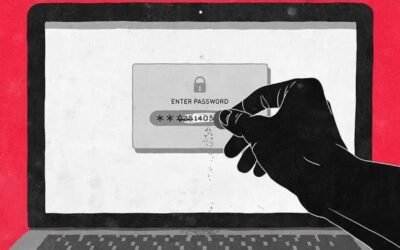Legal Framework
Pakistan has established a relatively comprehensive legal framework to address hate speech and sectarian incitement through multiple legislative instruments. The Prevention of Electronic Crimes Act (PECA) of 2016, particularly Section 11, criminalizes the online dissemination of content that “advances or is likely to advance interfaith, sectarian, or racial hatred,” prescribing penalties of up to seven years imprisonment. Similarly, the Anti-Terrorism Act (ATA) 1997, under Section 8, prohibits threatening or insulting expression intended to provoke sectarian discord, also carrying a maximum penalty of seven years.
In addition, Section 153-A of the Pakistan Penal Code (PPC) 1860 explicitly forbids the promotion of disharmony, hostility, or feelings of enmity between different religious or sectarian groups, punishable by up to five years in prison. Complementing these statutes is the Electronic Media Code of Conduct (2015), which restricts hate speech in television and radio broadcasts, aiming to curb the amplification of extremist narratives through mainstream media channels.
Collectively, these laws demonstrate the state’s recognition of hate speech, particularly sectarian incitement, as a serious threat to public order and intercommunal harmony.

Source: Dawn
Enforcement Realities & Systemic Weaknesses
Vague and Overbroad Definitions
Key legal terms; “derogatory,” “hurt feelings,” “disharmony,” remain poorly defined. Courts rarely distinguish between deliberately hateful speech and merely offensive or controversial statements. In practice, complainants’ subjective claims often suffice without judicial tests or contextual scrutiny.
Uneven Enforcement and Lack of Accountability for Mob Violence
Blasphemy laws, which often intertwine with sectarian and hate‑speech provisions, are disproportionately used against religious minorities, Christian, Ahmadi, Shia, Hindu communities, and in personal vendettas over land or disputes. Accusations frequently lead to mob attacks, forced displacement, and property seizure. hrw.org. presstv.ir.
Human Rights Watch documented numerous cases where blasphemy accusations were engineered economically, to evict minorities or extort payment and the accused were denied due process, detained without bail, and rarely received legal protection. Authorities often fail to arrest or prosecute those who incite violence or participate in sectarian mob attacks. Survivors report police inertia, intimidation of witnesses, or political-religious patronage shielding perpetrators.

Source: Crisis Group
Cases Illustrating Gaps
In January 2025 in Sahiwal, police booked individuals under PPC sections 295‑A and 298‑C and PECA section 11 for social‑media posts fueling sectarian hatred. A village prayer leader was also charged for posting sectarian comments in a viral sermon. These actions by respective authorities depict that authorities do occasionally act.
However responses are ad hoc, inconsistent, and rarely result in fully effective prosecutions. Meanwhile in Multan, four people were sentenced to death in January 2025 for allegedly posting blasphemous social media content targeting religious figures. The court imposed collective fines and prison terms, though defence lawyers warn of insufficient evidence and fear of religious pressure influencing verdicts.
New Restrictions on Digital Speech
A media regulation passed in mid‑2025 empowers authorities to censor or penalise social media platforms and users for disinformation or allegedly hateful content. Critics fear this law may suppress dissent and disproportionately target minority voices under the guise of “hate‑speech control.”
Legislative Gaps & Need for Reform
Uncertainty and Overreach
The failure to define key terms leaves the laws open to misuse; ranging from personal fraud and land grabs to broad religious intolerance. Without clear thresholds; such as intent, imminence of violence, or contextual harm, the statutes risk punishing legitimate, albeit sensitive, discourse.
Weak Victim and Witness Protection
Victims of sectarian hate or false blasphemy allegations, especially minorities, face threats throughout legal proceedings. Yet legislation lacks secure mechanisms for witness protection, anonymous testimony, or relocation support during trials.

Source: RSIL
Immunity for Vigilantes and Influential Actors
Those who lead or execute mob attacks, sometimes thousands strong, and those who file false cases for personal or economic reasons are rarely prosecuted. The current blame‑focused approach punishes the accused minority individual, not the instigators or institutional failure that leads to violence.
Lack of Training and Oversight for Enforcement Agencies
Police and prosecutors often lack sensitivity training or incentives to protect vulnerable communities. The law says officers must prevent hate speech, but failures go unpunished, and police officers complicit in violence or wrongful FIRs are seldom held accountable.
Recommendations for Stronger Legislation
To improve the effectiveness of existing laws and safeguard fundamental rights, several critical reforms are needed.
First, statutory language must be clarified and narrowed to reduce ambiguity and prevent misuse. Key terms related to hate speech and blasphemy should be defined with precision, including clear criteria such as the requirement of intent, the presence of imminent risk of violence, and exceptions for academic, journalistic, or artistic expression. Objective legal standards must replace vague and subjective interpretations that currently enable arbitrary enforcement.
Second, procedural safeguards must be strengthened to ensure due process. This includes introducing mandatory preliminary evidence assessments before formal charges are filed, allowing bail for non-violent speech-related offences, and guaranteeing the right to legal representation and a fair trial. These protections must be upheld independently of religious or political pressure to ensure justice is not compromised.
Third, accountability for incitement must be enforced more rigorously. Law enforcement agencies should proactively investigate individuals and groups that incite sectarian hatred or lead mob violence. Strong penalties must be imposed on those who exploit religious sentiment for personal or economic gain, such as through false accusations or land grabs. Furthermore, complainants and witnesses need legal protection, including options for anonymity and relocation, to prevent intimidation and retaliation.
Fourth, law enforcement responsibilities should be reinforced through training and independent oversight. Police personnel must be sensitized and equipped to handle sectarian incidents impartially, and those who fail to act, or are complicit in incitement, should face legal consequences. The establishment of independent monitoring bodies would help audit hate speech cases and evaluate police performance, promoting transparency and institutional accountability.
Finally, digital-era regulations must balance enforcement with rights protection. While the PECA and related statutes address online hate speech, any additional controls on social media platforms must include judicial oversight and explicit exemptions for protected forms of speech. Rather than relying solely on punitive tools, the government should invest in counter-speech strategies, such as public education, interfaith engagement, and transparent reporting systems on digital platforms. These measures would foster a more informed and tolerant public discourse while upholding the constitutional rights of expression and belief.
Conclusion
Pakistan possesses a relatively broad legal arsenal against sectarian hate speech and incitement. But weaknesses in statutory clarity, systemic bias, enforcement inertia, and potential for misuse undermine its efficacy. The blasphemy and hate-speech framework not only fails to protect minorities but can also enable economic exploitation and sectarian violence. Rather than intensifying penalties alone, Pakistan needs a calibrated overhaul: precise laws, procedural safeguards, institutional accountability, and victim-centered protections. Only reforms grounded in rule of law, not populist rhetoric, can meaningfully combat sectarian discord while preserving freedom, justice, and social harmony.




























